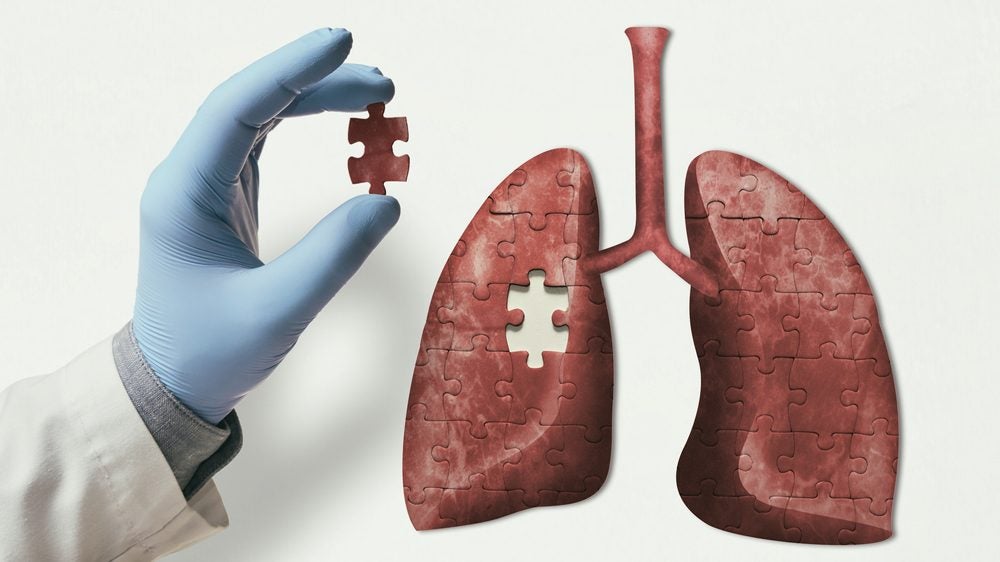
Hong Kong-based artificial intelligence (AI)-powered drug discovery company Insilico Medicine has completed administering the first dose of its AI-discovered drug in a Phase II clinical trial.
The company is evaluating its INS018_055 on lung function in patients with idiopathic pulmonary fibrosis (IPF).

Discover B2B Marketing That Performs
Combine business intelligence and editorial excellence to reach engaged professionals across 36 leading media platforms.
INS018_055 is potentially the first-in-class anti-fibrotic small molecule inhibitor discovered and designed by Insilico’s AI platforms, according to the company.
The randomised, double-blind, placebo-controlled, clinical trial will assess the safety, tolerability, pharmacokinetics (PKs), and preliminary efficacy of a 12-week oral dosage of INS018_055 in patients with IPF. This trial will have four cohorts, with patients receiving 30mg once-daily (QD), 30mg twice-daily (BID), 60mg QD doses or placebo.
Insilico plans to recruit 60 patients at 40 sites in China and US. The company initiated enrolment in China-based sites in April 2023 and received approval from the US Food and Drug Administration (FDA) for a simultaneous clinical trial in the US in June 2023.
Phase I trial results
In January, Insilico announced positive topline data from a Phase I healthy volunteer trial. The study utilised single-ascending dose (SAD) and multiple-ascending dose (MAD) to evaluate the safety, tolerability, PK profile, food effect, and drug-drug interaction of INS018_055.

US Tariffs are shifting - will you react or anticipate?
Don’t let policy changes catch you off guard. Stay proactive with real-time data and expert analysis.
By GlobalDataBased on subjective and objective examination, the primary endpoint measured the number of participants with treatment-related adverse events. The study recruited 78 healthy volunteers residing in New Zealand.
The data analysis showed that the observed PK profile was favourable and in line with preclinical modelling, with no significant accumulation after a week. The drug was generally safe and well tolerated, with no deaths or serious adverse events reported in the study.
In February, the FDA granted orphan drug designation (ODD) to INS018_055 for the treatment of IPF.
Insilico’s clinical pipeline
Beyond the IPF indication, Insilico is advancing its AI-generated drugs in other diseases as well.
Just after receiving ODD for the IPF drug, the company announced plans to commence clinical trials in China to evaluate ISM3312 in patients with Covid-19 with the aim to provide an alternative treatment for health management in the post-pandemic period.
In preclinical studies, ISM3312 reduced viral load in lung tissue and decreased lung inflammation.
In April, Insilico announced that it had discovered a potent selective and orally bioavailable small molecule inhibitor of cyclin-dependent kinase 8 (CDK8) to treat cancer.
IPF landscape
IPF is the most common subtype of idiopathic interstitial pneumonias (IIPs), characterised by damaged and scarred lung tissue. A GlobalData competitive landscape report estimates that in 2028 the highest diagnosed prevalent cases of IPF will be in China and India.
A recently published expert insight from GlobalData noted only a few approved therapies for IPF. Even though the late-stage clinical pipeline is small, it is slowly growing with several Phase III trials investigating drugs for this indication that has an unmet need.



